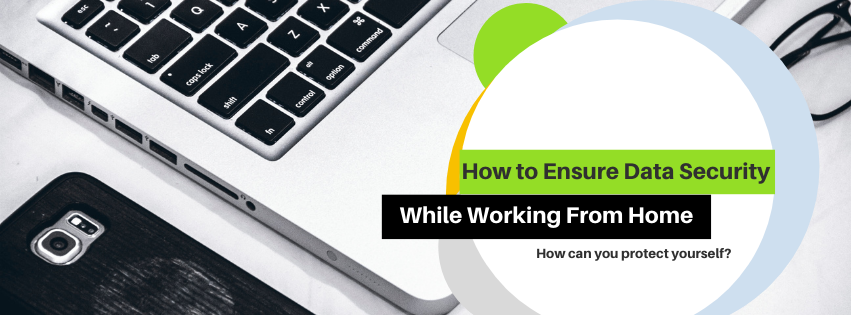With many employees working from home in the wake of COVID-19, educating your staff on data security best practices is more important than ever. Since your essential business and client information is being accessed remotely instead of only on your business’s server, making sure that you are protected against cyber threats is a must. Below are some tips on how you can safeguard your business against hackers and ensure that all your company’s private data is secure.
Use a VPN
One of the most important things you can do to protect yourself from cyber attacks is to use a VPN, or virtual private network. So what is a VPN? Essentially, using a VPN replaces your IP address with a new one that the provider supplies, thereby hiding your IP address and location and encrypting any data you transfer. The VPN acts as a tunnel: you connect to the VPN server, which communicates with the website for you. This makes even personal or public wifi networks much more secure. For more information on how to protect your privacy on public wifi networks, you can read our article here.
According to Accounting Web, you can send your employees their own VPN client by emailing them an install file that is protected by a password or by making it available via a secure download link. While using a VPN does completely eliminate the possibility of a data breach, it makes accessing your data so difficult that many hackers will simply give up. This makes the small investment of purchasing a private VPN client software well worth the cost.
Use https://
When you use the internet for any work-related tasks, especially ones that involve traferring data, you should make sure that you are use the https:// (not http://) prefix. The “s” in this prefix stands for “secure,” and notates that the website you’re accessing is using Secure Sockets Layer (SSL) to protect the communication between you and the server.
Other Measures You Can Take
In addition to using a VPN and ensuring that your browsers are using https://, you should also make sure to employ all traditional methods of data protection. These include utilizing a firewall system, installing an anti-virus software, and enabling multi-factor authentication for logins. Again, the goal of these efforts is not to make your data 100% secure, which is practically impossible, but to make the goal of hacking so arduous that it is not worth the effort for those who wish to take advantage of a poorly protected system.
While you can never truly ensure data security to 100%, utilizing a VPN, https:// connections, a firewall, anti-virus software, and multi-factor authentication are great ways to protect yourself from cyberthreats. This is particularly important when you or your employees are working from home and using personal or public wifi networks. Knowing that you and your client’s data is protected is well worth the extra time and effort that the initial setup of these programs may take, and in doing so, you are future-proofing your business against hackers and other potential data breaches.
